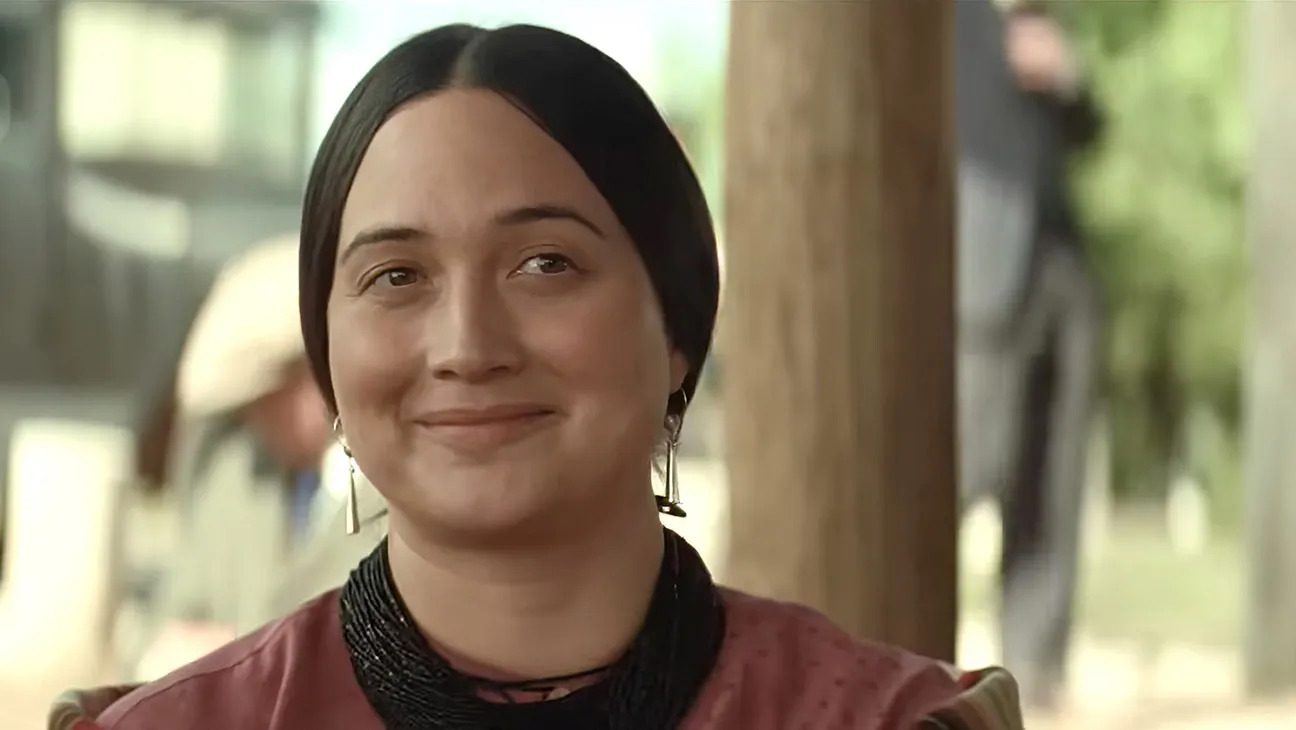Oscars So White Charges Reemerge After Best Actress Upset
Our betters are proving to be anything but again, at least by their own superficial standards. At last night’s Academy Awards (for which the ratings are not yet in – I believe those are usually revealed on the Tuesday after the ceremony – but I’ll assume most didn’t watch it), an upset occurred in the Best Actress category: Lily Gladstone, who was favored to win for her performance in Killers of the Flower Moon, lost to Emma Stone for Poor Things. Gladstone had all the buzz behind her not primarily for her performance – which was great – but because she would have been “the first Indigenous person to have won an Oscar.” What a slap in the face to an excellent actress.
Salon (yeah, I know) talked about Gladstone’s loss by noting that only three Indigenous people were nominated for Best Supporting Actor, with none of them winning, and none had ever been nominated for Best Actress before Gladstone, which is why – I swear, I’m not making this up – “Gladstone’s historic nomination was supposed to be different.” Gladstone’s expected win wasn’t seen by Salon as an award for acting but as a way of “rectifying how Indigenous people are still less than one-quarter of one percent of all speaking roles in Hollywood.” It would have been nice if the quality of her performance were mentioned once in that piece.
But that’s just Salon being Salon, and the media being the media; it’d be like getting mad at an unattended toddler for coloring on the wall. What’s funniest about this is that it happened after the Academy of Motion Picture Arts and Sciences made such a big deal out of diversity, enforcing what they dubbed the RAISE standards, wherein only movies that had a certain level of diversity either in front of or behind the camera would be considered for an Oscar nomination (except for Best Picture, which is probably funnier than anything Jimmy Kimmel said last night). The idea is to escape the “Oscars so white” charges from 2016 and 2020 – excuse me, to rectify the longstanding exclusion and marginalization of… whatever the hell they said. But the result was supposed to be more representation in Academy Awards winners, with opportunities for minorities to advance in the business as a bonus. And after all that, the whitest movie ever made won Best Picture, white people won three of the four acting categories, and a white man won Best Director.
So, what happened? Probably nothing bad; the Academy seems to have voted mostly based on merit. Oppenheimer won Best Picture because it was an amazing film, and Christopher Nolan won because he put it together masterfully. Cillian Murphy won because he brought out the humanity in a complicated, deeply flawed man, and Robert Downey Jr. won because he did much the same, hiding a snake in plain sight and giving him both human and idealistic motivations. Meanwhile, Da’Vine Joy Randolph (a black actress whom these same racially sensitive scolds aren’t mentioning) won Best Supporting Actress for, in the terrific The Holdovers, showing the pain of a grieving mother who’ll never be whole again mixed with a concerned friend who sees the good in a man it’s hard for most people to like. They were all deserving of their Oscars, and nobody seems to be questioning that.
As for Emma Stone, I haven’t seen Poor Things yet, but I suspect she was equally deserving. Based on the trailers and what I know of the film, it seems like a difficult role that, in the wrong actress’ hands, could have gone off the rails easily. If Stone made it work, she likely displayed real range and talent playing an unusual part in an offbeat movie. The uniqueness of the film and role probably worked in her favor because it demanded so much of her. This doesn’t take anything away from Lily Gladstone’s performance in Killers of the Flower Moon – she was excellent – but it’s a fairly straightforward part, and I can see the Academy wanting to give it to a performance as unique as Emma Stone’s. Sometimes, a choice like this comes down to a judgment call, and by nature of the movie and her character, Emma Stone had the extra oomph to push her ahead of Lily Gladstone. The Mercury News also wisely points out that Lily Gladstone has only fifty-six minutes of screen time in Killers of the Flower Moon, which is almost three and a half hours long, while Emma Stone is the clear focus of Poor Things. Perhaps the Academy felt Gladstone was really a supporting actor more than a lead, and for that reason, they went with Stone.
Whether Emma Stone’s win is right or wrong, fair or unfair, isn’t the issue, though. It’s watching these preening, finger-wagging snobs who love to tell the rest of us how racist and exclusionary we are being lambasted for their own perceived racism. They pulled out all the stops to make themselves look good, to elevate diversity over merit, and it blew up in their faces again. And it didn’t have to be this way; all they had to do was let the whiners whine and keep on keepin’ on. The usual suspects (like Salon) would still hiss at them for giving Oscars to no-talent white heterosexual men like… you know… Christopher Nolan and Robert Downey Jr., but normal people wouldn’t care, and at least the Hollywood elite wouldn’t look like hypocrites. But that’s what happens when you play a rigged game; no matter what happens, you lose.
As an aside, my favorite thing that happened last night was Wes Anderson’s “The Wonderful Story of Henry Sugar” winning Best Live Action Short Film. If you’re a fan of Anderson’s and/or Road Dahl’s, you should check it out on Netflix, as well as the other three he made (“The Rat Catcher,” “The Swan,” and “Poison”).







